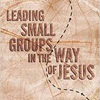Note: This article has been excerpted from the SmallGroups.com training resource Choosing and Evaluating Bible Studies.
Henry (not his real name) tried really hard. He wanted to become a regular Bible study writer, so he sent me a rather impressive résumé of his theological training and experience. I happened to need a writer at that moment, so I gave him a trial assignment.
What I got back showed a good grasp of the subject matter and Bible text that it was based on. He obviously knew what he was talking about. In fact, he knew more than the average Bible-study member would be able to decipher. He wrote in theological language that you needed a PhD to understand. He also had no idea how to put the subject matter into a form to discuss. He was a teacher and was used to imparting information, not creating conversation.
That experience with Henry sums up why it is so difficult to find a really good Bible study. Everyone wants the study to increase their knowledge, but they also want it to create a lively group experience that's applicable. Finding all those things in one study can be tricky. So look for a study that includes each of the following:
Increase Your Knowledge
Nothing is worse than an overly simplistic Bible study. What makes us want to study the Bible in the first place is its complexity. That does not mean that it's impossible to understand, but it does mean that it should get us beyond surface level. For example, a study on the Ten Commandments should include more than a simple recitation of all ten commandments. If we are studying those commandments, we want to understand what they are truly saying and how they apply to our lives today. Otherwise we could just list them and be done with it.
But many Bible studies today do the equivalent of just that. They direct us to a Bible text and then ask us to parrot back the exact words written there. This can be useful to set the context, but it can never move us beyond a simple observation to understanding the meaning and applying it to our lives. And it's an absolute discussion killer. All the person can do is answer the question and move onto the next one. There are no opinions expressed or deeper meanings gleaned.
Then again, we don't want to fall into Henry's problem of making the text so complicated that we have no idea what it is saying. So the answer? Look for a study that is theologically sound but not difficult to understand. Try to find a study that includes solid passages of Scripture. If the study just throws in a verse here and there to support a point, you won't be getting into the meat of the Word. Instead look for studies that put longer passages of Scripture into context. If someone just uses a snippet, they may be trying to bend the Scripture to prove their point, rather than the other way around. So if the study is talking about forgiveness, it should use a section of Scripture where forgiveness is the main idea being discussed, not a random verse where something is mentioned in passing.
Also look for a study that is not afraid to admit that there are things we aren't sure about. It should let readers know that, for some issues, there is no definitive opinion and that the best of Christians disagree.
Create a Lively Group Experience
Most Bible studies are written for a group experience. And if it's going to be a good group experience, it should include great open-ended questions that require thoughtful answers. Avoid Bible studies that include only yes or no questions, or ones that simply parrot back the information in the text. Instead, the questions should require a thoughtful answer.
For example, for a study on the Trinity, if the questions are along the line of, "Do you believe in a triune God?"—that requires only a yes or no answer and kills discussion. Instead it should ask something like, "What difference do you think it makes that God is triune?" or "How would you explain the Trinity?"
If a study does ask a yes or no question, it should always ask for an expansion. For a study on forgiveness, if a question asks, "Do you struggle with forgiveness?" Then it should follow it up with, "Share your story." Knowing that can help you turn less than ideal questions into ones that will create a better group experience.
A great study should also have engaging, excellent writing. In fact, Bible studies should be as engaging to read as any article or book. Here are some examples of great writing in a Bible study. From a study called Pulling Weeds in the Church Yard:
Christian faith has been used to justify acts as violent as the Crusades, the lynching of blacks in America, and the bombing of abortion clinics. And maybe not as violent—but certainly as vicious—can be the rhetoric Christians use in public political and moral debates. However, faith requires Christ followers to put ourselves under the Word of God, not the other way around, to fit our agendas.
Doesn't that intrigue you and make you want to know more of what the study is about? It certainly sets the stage for a lively discussion. Here's another snippet from Can I Trust My Bible?
The Bible is not an arbitrary collection of cute, nice, or even wise writings that simply amassed themselves together in some dusty corner of a Jewish rabbi's personal library; it is a set of literary creations built on the foundation of God speaking words of covenant relationship.
That makes me want to know everything I can about the Bible and to know this God who wants to have a relationship with me.
Make Sure It's Applicable
Finally, make sure the study is practical. Remember that the point of all Bible study should not be to simply impart knowledge. It should produce change. The study should present the Word of God as the living, active thing it is. It should help us to savor the Word of God as a precious morsel and allow it to ask questions of us, rather than we simply asking questions of it.
For example, if a study presents the story of the rich, young man who Jesus tells to sell all his possessions and follow him, it shouldn't make up an analytical interpretation to explain this away. It should force us to listen to Jesus' words as if they are directed to us and consider what that means for our lives. In other words, it should avoid making God in our own image and let him make us in his.
Look for a Bible study that digs into the meaning of the text but also provides a way to apply it. We can study the Ten Commandments until we've completely dissected them, but if we don't figure out how to obey them, that will be meaningless. We can debate all day what it means to "honor your father and mother," but unless we figure out how to do that, it's not going to do us any good. So keep in mind the highest form of knowledge is wisdom. As you are looking at curriculum, decide whether it is merely imparting information or moving you beyond that into wisdom.
Of course, the best Bible study in the world can still fall flat. So pray that God will give you and your group a thirst that is never quenched in a mere hour a week, but that each person will want to know more because they can't get enough of it.
—JoHannah Reardon is the managing editor of ChristianBibleStudies.com.








